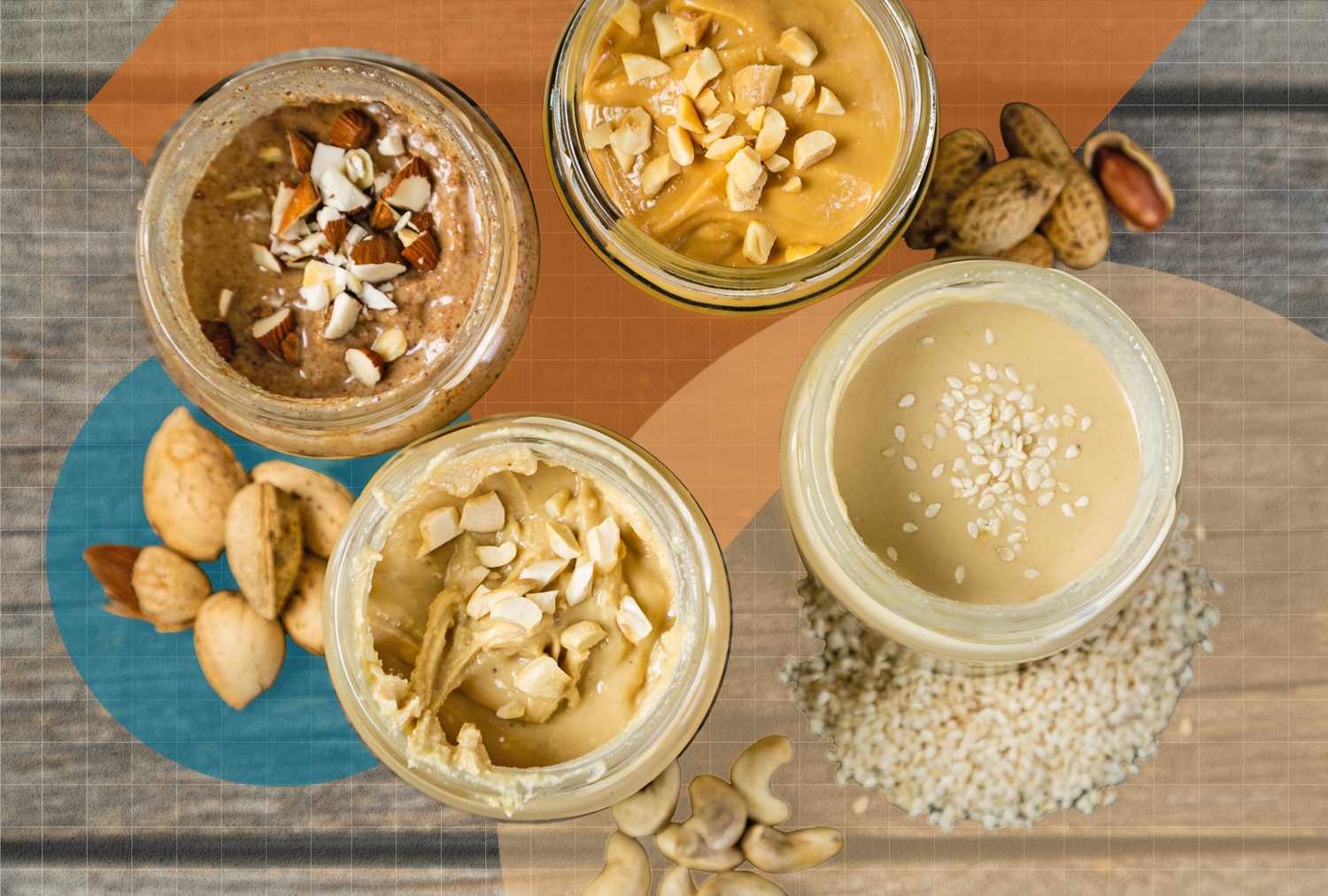Eggs are a staple in many kitchens, and for good reason. You can find scrambled eggs at any continental breakfast buffet, hard-boiled eggs at a mini mart as a grab-and-go snack or fried eggs topping toast smeared with avocado. One of the reasons eggs are so beloved is that they’re a quick and easy source of protein. In fact, one large egg contains about 6 grams of protein. However, they aren’t the only protein option for breakfasts, snacks and beyond. You may be surprised to find out that several nut and seed butters have even more protein per serving than an egg.
1. Peanut Butter
2 tablespoon of peanut butter = 8 grams protein
Peanut butter and jelly sandwiches are a nostalgic combination for many, but they’re more than just a lunchbox staple. Peanut butter provides a boost of protein and creates a balanced meal that helps keep kids (and adults) energized throughout their days. “Peanut butter is one of the easiest ways to add staying power to meals and snacks. I love stirring it into oatmeal or blending it into smoothies for a boost of protein and healthy fats,” shares Jenna Gorham, RD, LN.
Peanut butter can also be a good choice to support healthy weight maintenance as well. “Due to its high protein, fiber and healthy fat content, peanut butter is beneficial for weight management, heart health and blood sugar management,” says Carrie Gabriel M.S., RDN.
2. Almond Butter
2 tablespoon of almond butter = 7 grams protein
“Almond butter provides around 7 grams of protein per serving, along with vitamin E, magnesium and calcium,” explains Jenny Finke, M.S., RDN. Almonds offer numerous different health benefits including reducing inflammation, lowering HDL cholesterol levels and improving gut health.
“Drizzle almond butter over a grain bowl, spread it on apple slices or stir it into overnight oats for a creamy, satisfying texture. Raw almond butter has a milder taste, while roasted almond butter offers a deeper, toasty flavor, so choose whichever suits your palate,” shares Finke.
3. Pumpkin Seed Butter
2 tablespoon of pumpkin seed butter = 10 grams protein
A less common spread, but one that packs a punch, is pumpkin seed butter. “A two-tablespoon serving of pumpkin seed butter contains about 10 grams of protein, which is more than a large egg. Pumpkin seed butter is also a good source of essential minerals like iron and zinc,” said Avery Zenker, RD. Iron is a mineral that is crucial for oxygen transport around the body, energy production and cognitive health, but many people may not be meeting their needs through food. Pumpkin seed butter—and pumpkin seeds in general—are a great plant-based way to up your intake.
4. Sunflower Seed Butter
2 tablespoon of sunflower seed butter = 6 grams protein
With the shift to nut-free classrooms and cafeterias, sunflower seed butter has become increasingly popular. “Sunflower seed butter provides roughly 6 grams of protein per serving and is completely nut-free, making it a school-safe and allergy-friendly alternative that many of my clients with children love. Sunflower seeds are rich in vitamin E and selenium, which act as antioxidants to protect cells from oxidative stress,” says Finke. These tiny seeds pack a nutritional punch containing vitamin E, folate and niacin.
Our Expert Take
Whether you need a break from eggs or need to avoid them due to an allergy, rest assured they aren’t the only quick and easy protein source to add to meals and snacks. Several nut and seed butters like peanut butter, almond butter and sunflower seed butter offer even more protein per serving than an egg. This is important because protein is crucial for muscle recovery, satiety and longevity. Adding in some nut or seed butters can be the extra boost you need to hit your protein intake goals. But remember that variety is the name of the game when it comes to protein sources in your diet. Consuming numerous different protein-rich foods can help you get a range of nutrients in your days.

